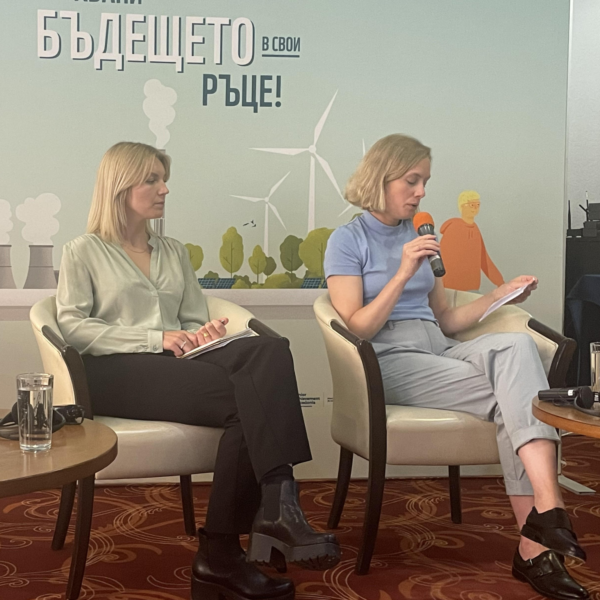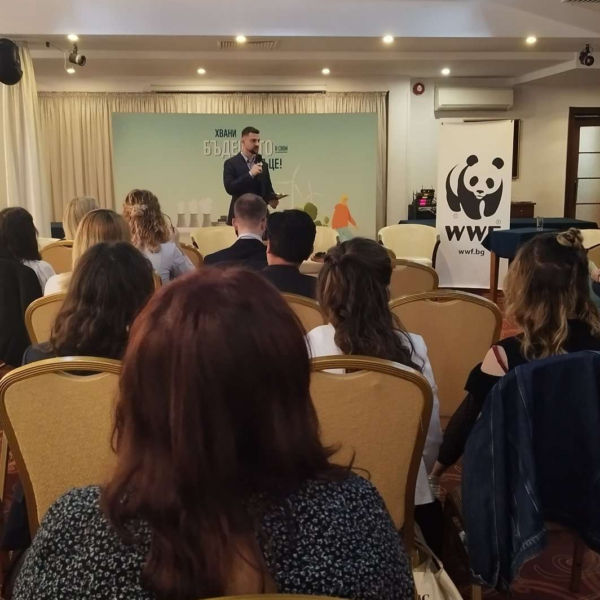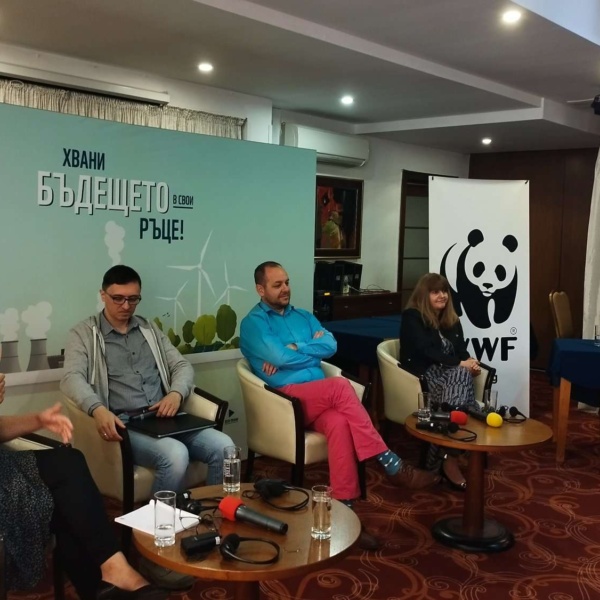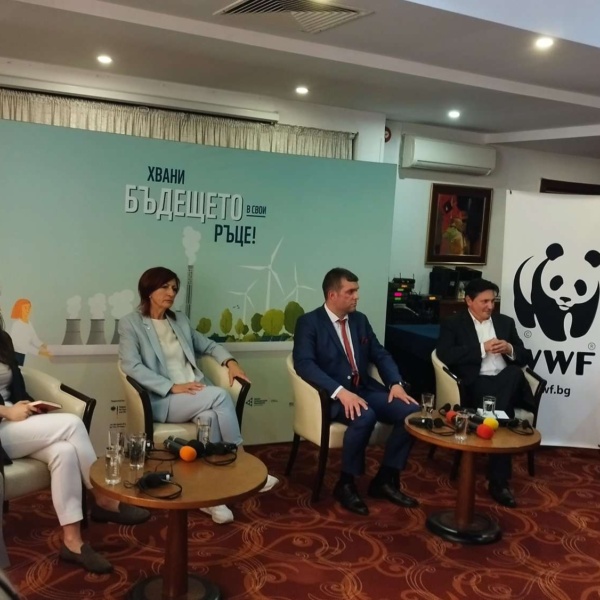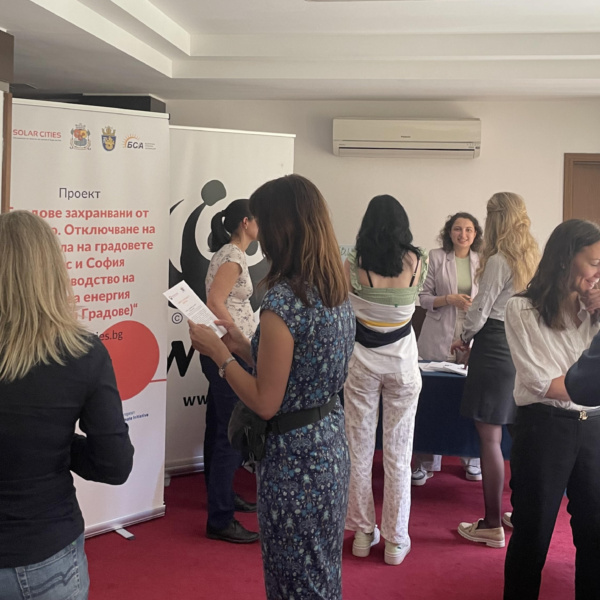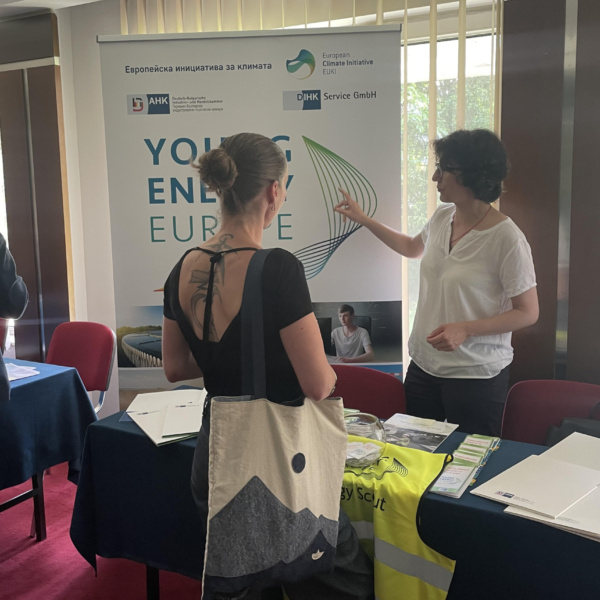Bulgarian EUKI Networking Event: The Future of Energy
The EUKI Academy and WWF Bulgaria organised a conference that brought together Bulgarian EUKI beneficiaries to share valuable experiences and best practices. The main goal of the conference was to gather the EUKI community and foster better collaboration by exploring new and more effective ways of working together. Kostadin Andonov, Youth Engagement and Innovation Manager at WWF Bulgaria, stressed the objective of expanding the EUKI Community and enhancing collaboration for climate action. Special guests during the panels were members of parliament, representatives from the Bulgarian Ministry of Economy, the Ministry of Environment, EUKI representatives as well as representatives of the German Embassy in Sofia.
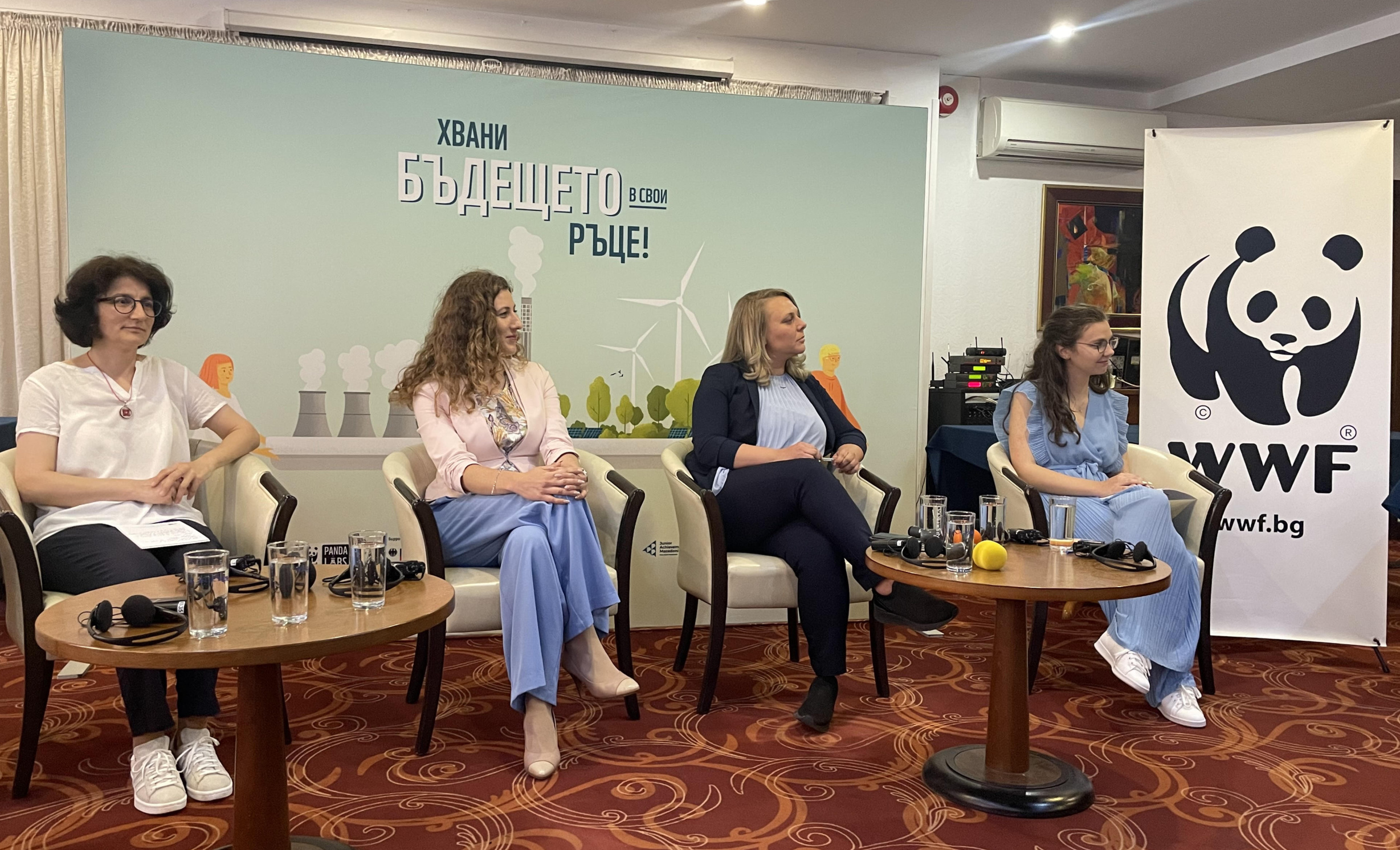
The conference commenced with an opening speech by Vesselina Kavrakova, the CEO of WWF. She drew attention to the challenging times that have resulted in a diversion of public focus from the critical issues of biodiversity loss and climate change. Kavrakova emphasised the significance of empowering young people and striving for comprehensive outcomes. Deborah Lavall, Culture and Press Officer of the German Embassy in Sofia, underscored the importance of fostering strong collaboration between the two countries. Elsa Benhoefer, Head of the EUKI Academy, extended a warm welcome to the conference attendees and expressed gratitude for the collaboration with Bulgaria, recognising it as a pivotal partner in climate mitigation matters. Bulgaria is involved in a substantial number of EUKI-funded projects, with 31 Bulgarian partner organisations making highly valuable contributions.
EUKI representatives Luciana Lerho and Elsa Benhoefer | Kostadin Andonov, WWF Bulgaria, Photos: ©WWF Bulgaria
Energy communities as a solution to energy poverty
Energy poverty and sustainable energy communities were discussed in the first panel, which included Assen Nenov, Theodora Peneva, Borislav Sandov, Assya Dobrodzhulieva. Peneva highlighted the issue of energy poverty affecting over 1.5 million Bulgarians living with less than 250 Euro a month and the need for systemic approaches and clear definitions to address this effectively. Dobrodzhulieva provided data on energy poverty in Roma neighbourhoods and the cycle of poverty and pollution caused by reliance on wood and coal for heating. Sandov emphasised the importance of social and climate funds to support vulnerable households but noted the challenges in convincing the Ministry of Labor to prioritise tackling energy poverty. Experts stressed the necessity for systemic change, political responsibility, and sustainable models to tackle energy poverty and ensure access to renewable energy sources.
Business innovations in the just energy transition
The second panel focused on Innovation Drivers, featuring Sasha Bezuhanova, Remina Alexieva, Vladimir Zinoviev, Stefan Krastev, and Viktor Garbev. Bezuhanova called out the need for changemakers to lead the transition process, advocating for a holistic approach involving multiple stakeholders and an inclusive program that addresses challenges, fosters innovation, and promotes responsible resource management. Alexieva highlighted the importance of a framework for innovation and common priorities to drive progress. Zinoviev and Krastev expressed optimism about the contribution of young scientists and the involvement of qualified individuals in shaping a sustainable future.
Panel discussions, Photos: ©WWF Bulgaria
Youth engagement for climate initiatives
The final panel discussed youth policies and engagement with Irina Ilieva, Ilina Moutafchieva, Tsvetelina Garelova, and Krassimira Dimitrova. The panel emphasised granting young individuals freedom and participation in decision-making processes. Evidence-based policies, intersectoral collaboration, and tailored programs were identified as key elements. The panel underscored the necessity for evidence-based policies, intersectoral collaboration, and tailored programs catering to the specific needs and interests of young people. The lack of available data and coordination among government departments were highlighted. The panelists agreed that empowering youth and providing meaningful opportunities can cultivate innovative and responsible citizens in Bulgaria.
Projects exhibiting their work, Photos: ©WWF Bulgaria
The guests got the opportunity to present their work and projects during an exhibit session. The audience was able to spend some time in networking activities as well as joining the discussion after each panel.

